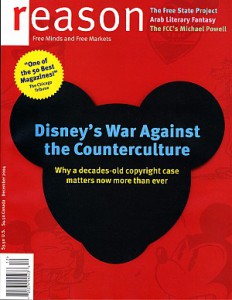Internet activist Aaron Swartz committed suicide after downloading 4 million articles from JSTOR and got charged with 13 felony offenses. The writer Pamela Samuelson argues that charges against Aaron was necessary but Aaron’s mission or goal was worthy. Many JSTOR articles were funded through research grants and governments and foundations, so Aaron had no idea that he didn’t have to pay for it. Even articles are not covered by which listed above, some articles written by university professors are covered by their salary. And JSTOR were written by scholars to share the knowledge. Pamela argues that copyright is being an obstacle to knowledge and articles like JSTOR should be open-access for scholarly work.
Tag Archives: copyright
Copyright Laws
Copyright laws has set a standard of understanding that the hard work of one individual shouldn’t be stolen and taken advantage of by another. These laws were set in place in order to be sure that the provider of creativity receives all significant rights over all use of their work, but when does these rights go over board? We have all experienced hearing the news of a specific cooperation that has one millions of dollars due to strict copyright laws. Another example is downloading music. We all have downloaded something that is looked at as “illegal”. Everyone does it. I personally believe there should be come a point where if everyone is performing a specific act why should it even be considered illegal. The law isn’t being respected anyway.
Notes from today, and reading & blogging assignments for Monday 9/30
Today we discussed copyright and fair use, especially the four factors that guide educational fair use (remember, there is no fair use law — only guidelines). Slides from today are available here.
On Monday, September 30, we will discuss privacy, its changing definitions, and the challenges presented by digital networked media. Please read the following:
Marshall, P. Online privacy. CQ Researcher, 19, 933-956.
Wu, Why Monopolies Make Spying Easier, The New Yorker, 18 June 2013.
Your blogging assignment is one comment on one blog post written by a classmate (NOT written by me!), or two comments on two different posts totaling 100 words. You can comment on a recent post or a post from earlier in the semester. Refer to the blogging guidelines or ask me if you have questions.
Discussion Facilitators: Sara, Livanesa, Moe
~Prof. Leonard
Copyright. The broken system.
Copyright is the owners/creators rights to material they have created. It’s meant to protect a person’s intellectual property from others use. Others would have to ask/get legal use of a copyright. Often times, they’re are royalties and other payments made to use copyrights. It sounds like a pretty good way to protect your copyright material. The copyright system is far from perfect. Since obtaining copyrights often times require monetary compensation, there is room for abuse of the system. Material that seems similar can receive legal repercussions. A lot this controversy happens in the music industry. Copyright owners charge an absurd amount of money for the use of their songs. In particular, the song, “Happy birthday,” requires a large amount of money just to be able to sing it in like a television show. If the copyright royalties is not paid, the company that owns the copyright to it will sue. Copyright in theory is a great idea that protects many people’s intellectual property, but the system could be better to prevent future lawsuits.
Since the 1700s copyright laws have exsisted. Grey also speaks about how the laws have became stricter and more longer, lasting even until the creator passes away. The question is does these laws restrict us from naturally and freely being creative, are the laws “choking” our creativeness. Lessing passionately speaks about, copyright laws suffocating our thoughts, and most importantly effecting our future thinkers, our children. Disney and other corporations are protected by these copyright laws. After watching Faden’s production, I researched Disney and copyrights on Wikipedia. The Copyright Term Extension Act was lobbied by Disney so much it was nicknamed, the Mickey Mouse Protection Act. Even educators and learners are feeling the effects of copyright laws because some teachers do not want to be sued. Center for Social Media’s document shows the collection of facts to take into account with fair use in the education system. All this leaves me to think, is our creative right being hindered?
Copyright = Copy it Right
According to Grey’s video, copyright laws have been protecting the creator since 1710. Copyright is contract between author and the society, to not to copy and build it’s original. I’m not sure about all creator or author but the creator of Star Wars, George Lucas thought that his copyright to his movies were too short so it was extended. I think Grey is trying to ask if that is necessary. Only one who will benefit from long copyright is the corporate or company. Even some creative film maker comes with remake of Star Wars, it still wouldn’t damage its original. And i couldn’t agree more with this because last episode of Dexter was horrible and someone should remake the last episode.



